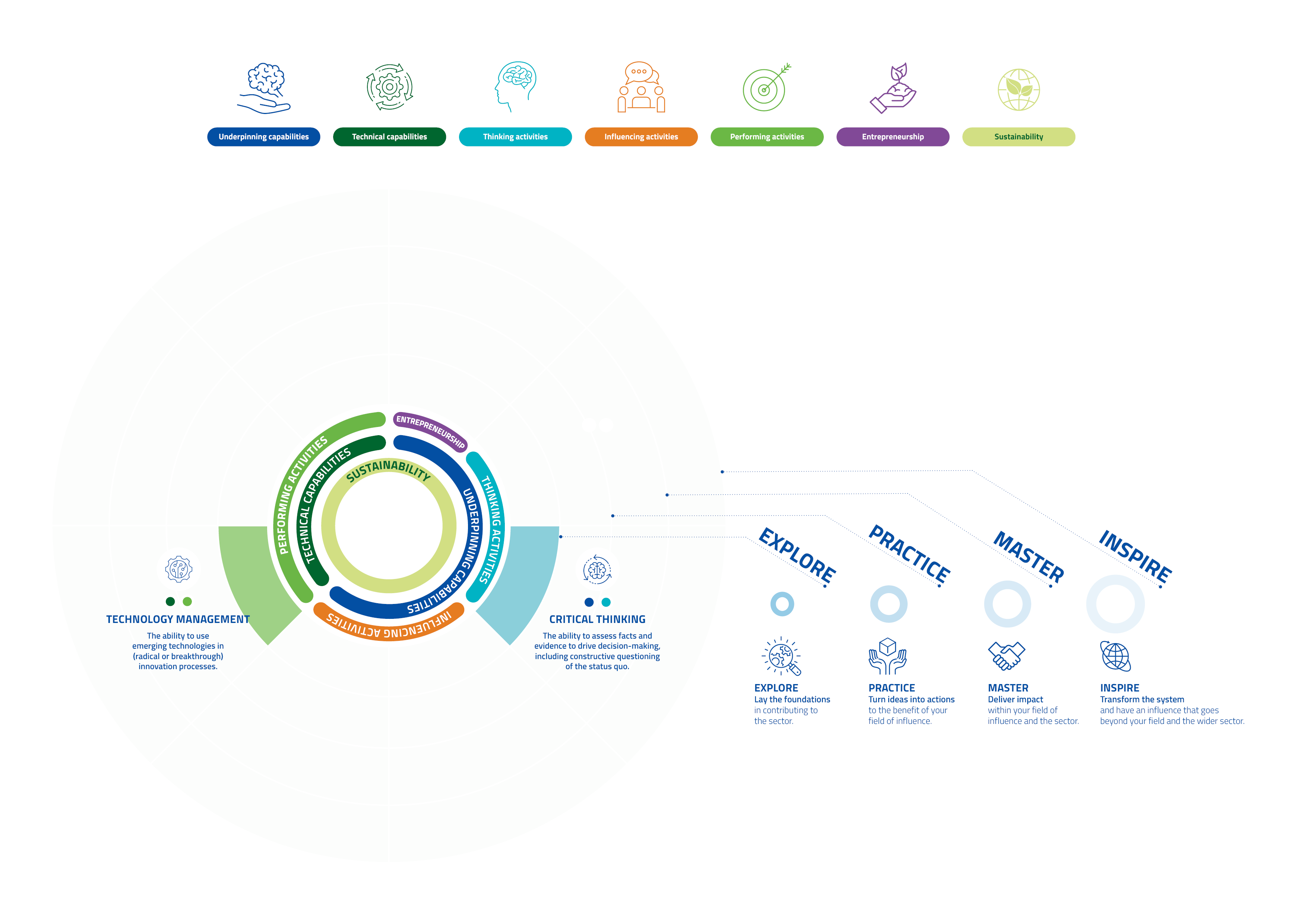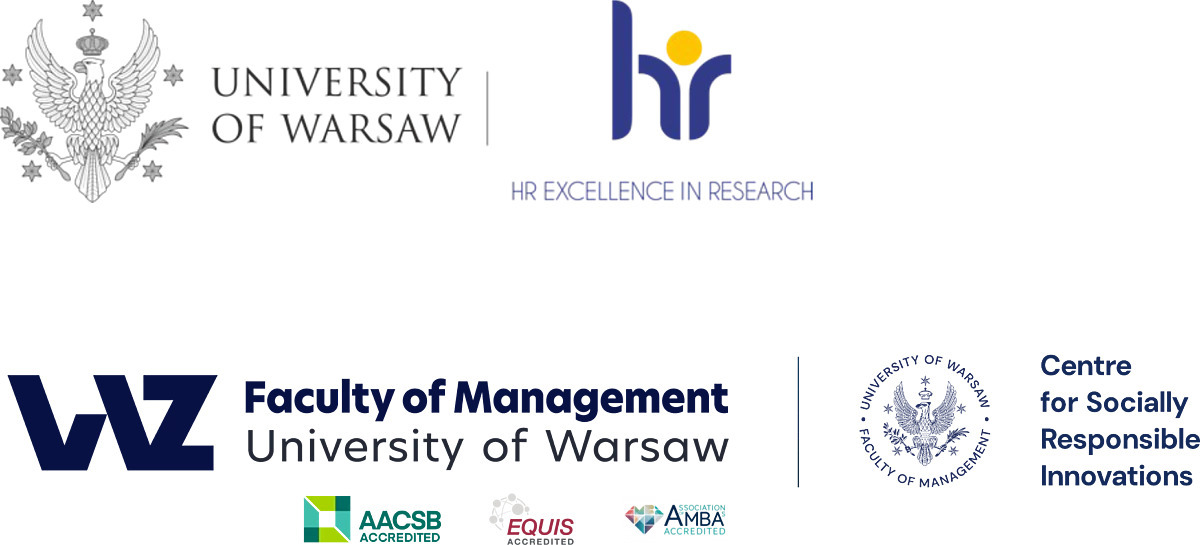InfraBooster Foundation
The initial level of InfraBooster educational modules.
Recruitment for InfraBooster is open for RIS countries!


Course information
- Applications
-
Open!
- Dates
-
The InfraBooster Foundation program is available continuously throughout the year until the end of 2025.
- Price
-
Free of charge
- Location
-
Online
About : What are the goals of this course?
EIT InfraBooster Foundation helps representatives of scientific organisations identify, specify, promote and manage research infrastructures used for science-industry collaboration. The course is delivered as synchronous online training, involving presentations, discussions, case studies, individual and team assignments.
- Introduction to EIT InfraBooster certification pathways: knowledge, skills and competences; benefits for participants and their organisations.
- Leveraging research infrastructures (RIs) for knowledge transfer: third mission of universities and public research institutes (going beyond teaching and research, societal contributions, knowledge transfer scenarios); making money from research at scientific organisations: technology transfer, spin-offs, contract R&D, analytical services and education and the opportunities for making money from commercial access to RIs; RIs of scientific organisations that open up opportunities for industrial collaboration and revenue generation: benefits, limitations and risks.
- How to select research infrastructures (RIs) for knowledge transfer: identifiable, relevant and competitive RIs; looking for RIs differentiators; RIs as the basis for commercial strategy.
- Case study - knowledge transfer opportunities, decision making and selection criteria: discussion of research focus areas a fictional university faculty (FADES), types of R&D activities and opportunities for industrial collaboration; research infrastructures - sources of uniqueness, target customers/industries that benefit from the RI, ways of making money from the RI, existing versus planned RIs.
Advantages
The InfraBooster Foundation course offers you a variety of advantages that are designed to build your competencies and enhance your professional trajectory, particularly if you are involved in the management of, or research within, scientific infrastructures.
Here are the main benefits of participating in this programme:
1. You will gain a profound understanding of how research infrastructures can be leveraged for science-industry collaboration.
2. The program equips you with the skills to select the most commercially relevant research infrastructures. You'll learn how to assess their potential for revenue generation.
3. Throughout the course, you'll engage in case studies and discussions that sharpen your critical thinking and decision-making skills and prepare you to tackle complex problems and make informed decisions about using research infrastructures in various scenarios.
4. By participating in the programme, you’ll connect with other professionals from across Europe, which can lead to collaborations and open up new opportunities.
5. Upon successful completion of the course, you will receive a certificate accredited with the EIT Label, not only enhancing your CV but also underscoring your expertise in managing and utilizing research infrastructures.
What you'll learn : You will learn the following competencies

Technology management
Understand the importance of research infrastructures (RIs) owned by scientific organisations as means to organizational transformation, spurring societal impacts and offering commercial opportunities for science-industry collaboration.
Analyse the value of research infrastructures (RIs) owned by scientific organisations and their relevance for industrial collaboration and revenue generation.
Critical thinking
Identify research infrastructures (RIs) at a given scientific organisation intending to leverage these infrastructures for science-industry collaboration (understanding their sources of uniqueness and addressing the needs of selected target clients).
Career opportunities : This course is for you!
After completing EIT Food InfraBooster Foundation course, there are several career opportunities that participants might explore, especially within the realms of technology management, business development, and research. Here’s how the course can impact your career trajectory:
1. Enhanced technology transfer skills: The course equips participants with the knowledge needed to leverage research infrastructures for technology transfer. This can open up opportunities in technology transfer offices at universities and research institutes, where you can work on commercializing research outputs.
2. Business development and commercial strategy: Understanding how to select and manage research infrastructures that are commercially relevant can position you for roles in business development. These roles may focus on creating partnerships between academia and industry, developing commercial strategies that leverage research capacities for business gains.
3. Roles in research infrastructure management: The course prepares you to manage research infrastructures, which can lead to positions at scientific organizations that require expertise in overseeing complex scientific facilities and ensuring they are used effectively for research and commercial projects.
4. Consulting and advisory services: With a strong understanding of how research infrastructures can contribute to industry and societal needs, you could work in consulting roles, advising on the setup, upgrade, and utilization of these infrastructures for maximum impact.
5. Academic and research careers: For those in academia, the course can enhance your ability to contribute to your institution’s third mission—beyond teaching and traditional research—by enabling societal contributions through knowledge transfer.
6. Advanced training and specialization: After completing the Foundation module, you can advance to the InfraBooster Practitioner and Expert level modules, which focus on more specialized topics such as intellectual property management, legal and financial aspects of research infrastructure management, and further deepening of business development and marketing skills.
Structure & Modules : How is it delivered?
Initial level: InfraBooster Foundation educational module, serves as the first step for the next level – advanced training: InfraBooster Practitioner.
It ensures that participants adopt standard vocabulary and gain an understanding of the innovative contexts, in which research infrastructures could be leveraged for science-industry collaboration.
It also helps participants understand the importance of research infrastructures and select the most commercially relevant research infrastructures for R&D efforts of private sector companies in target sectors.
InfraBooster Foundation is open for participants from different scientific and educational backgrounds with relatively inclusive recruitment and selection approaches, and participants do not need to demonstrate specialist technological or marketing knowledge.
EIT Food InfraBooster Foundation helps representatives of scientific organisations identify, specify, promote and manage research infrastructures used for science-industry collaboration. Participants complete the course individually via the Kampus VLE platform, allowing for flexible learning at their own pace. InfraBooster Foundation is designed to be highly interactive, featuring a variety of learning methods: case studies, Q&A materials, and practical exercises.
1. Introduction to EIT Food InfraBooster certification pathways: knowledge, skills and competencies; benefits for participants and their organisations.
2. Leveraging research infrastructures (RIs) for knowledge transfer: the third mission of universities and public research institutes (going beyond teaching and research, societal contributions, knowledge transfer scenarios); making money from research at scientific organisations: technology transfer, spin-offs, contract R&D, analytical services and education and the opportunities for making money from commercial access to RIs; RIs of scientific organisations that open up opportunities for industrial collaboration and revenue generation: benefits, limitations and risks.
3. How to select research infrastructures (RIs) for knowledge transfer: identifiable, relevant and competitive RIs; looking for RIs differentiators; RIs as the basis for commercial strategy.
4. Case study - knowledge transfer opportunities, decision making and selection criteria: discussion of research focus areas a fictional university faculty (FADES), types of R&D activities and opportunities for industrial collaboration; research infrastructures - sources of uniqueness, target customers/industries that benefit from the RI, ways of making money from the RI, existing versus planned RIs.
Applications clearly made solely using AI text generation and un-proof read will not be accepted and rejected.
Activity Leader :

Krzysztof Klincewicz
Activity Lead at EIT Food RIS Consumer Engagement Labs and EIT Food RIS Public Sector Representatives
kklincewicz@wz.uw.edu.pl
Piotr Nawrocki
Project Coordinator Government Executive Academy
pnawrocki@wz.uw.edu.pl
Katarzyna Kotowska
Project Coordinator InfraBooster Western Balkans
kkotowska@wz.uw.edu.pl
Mansour Esmaeil Zaei
Project Coordinator InfraBooster
mez@wz.uw.edu.plPartners : In collaboration with
Related courses
View our full course catalogue

From Waste to Value: How to Tackle Food Waste


Circular Business Models for Sustainable Urban Food Systems


Understanding Mediterranean and Okinawa Diets
